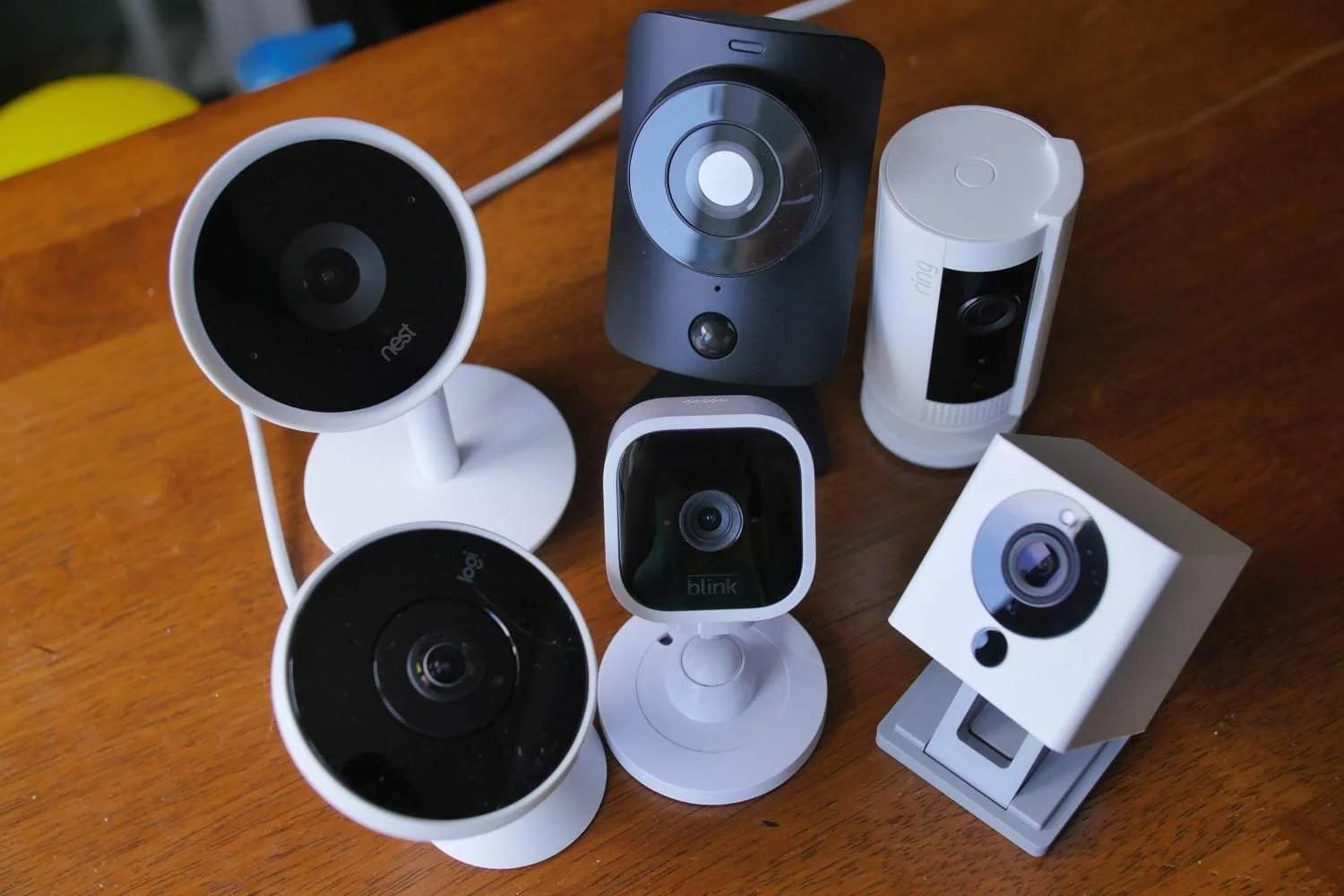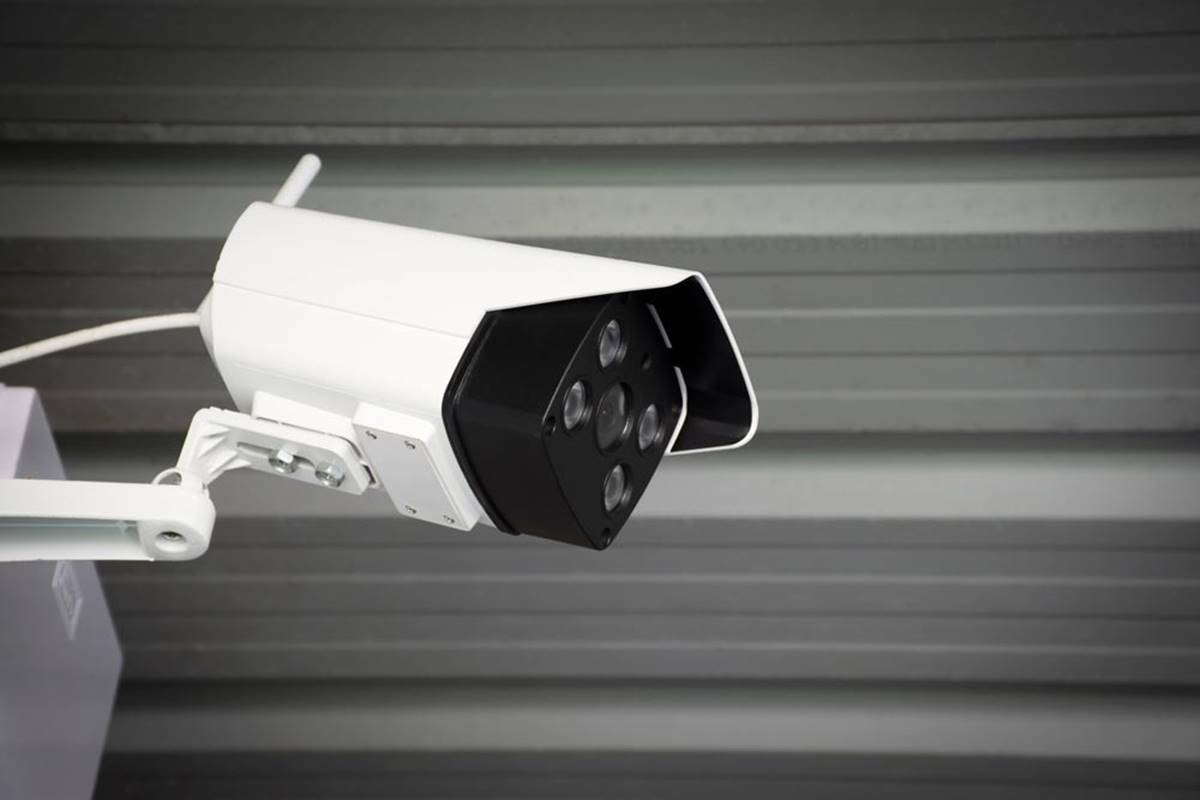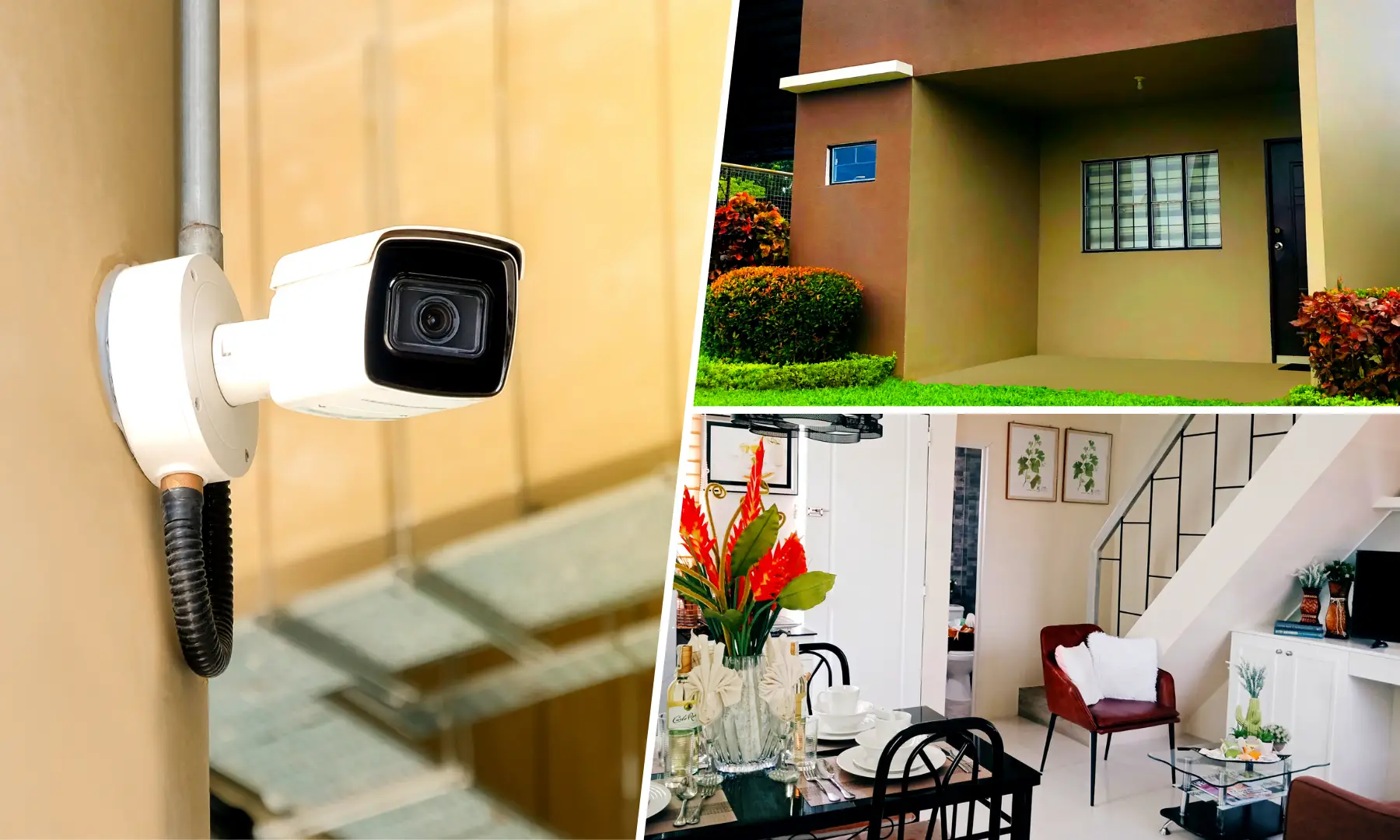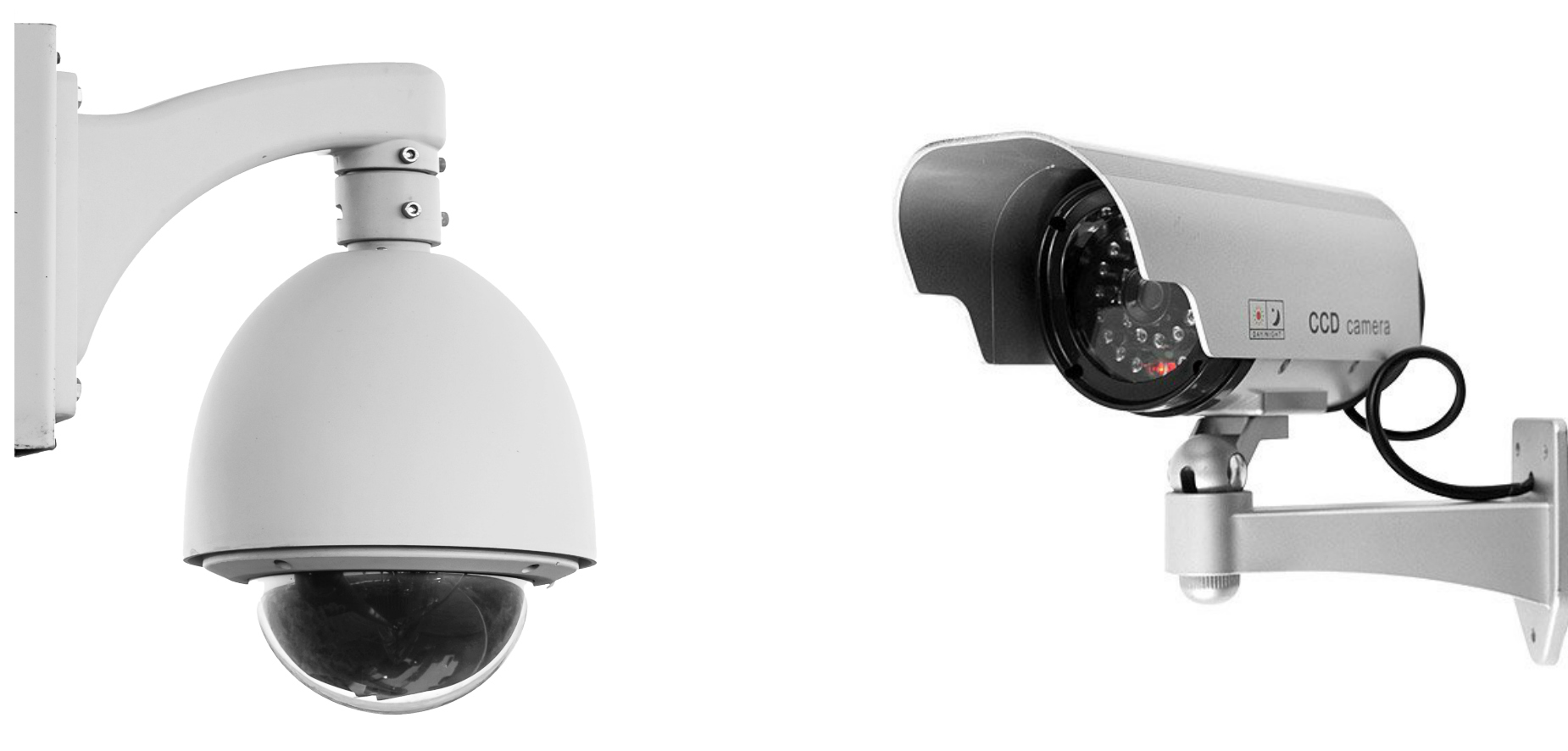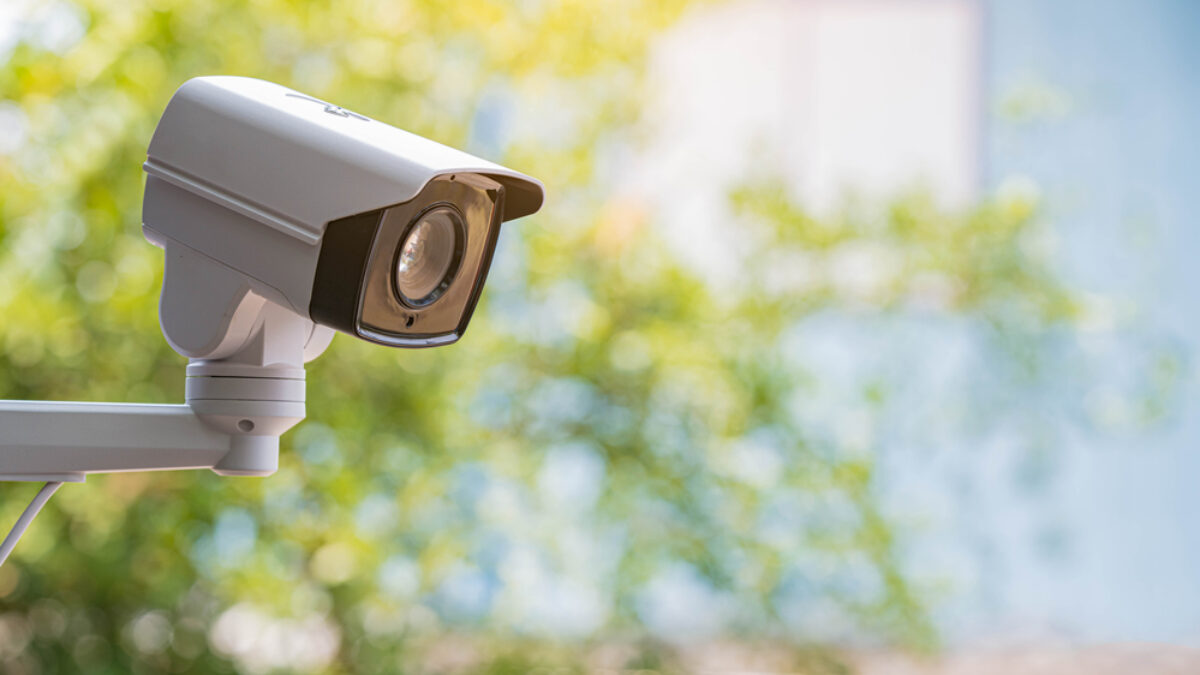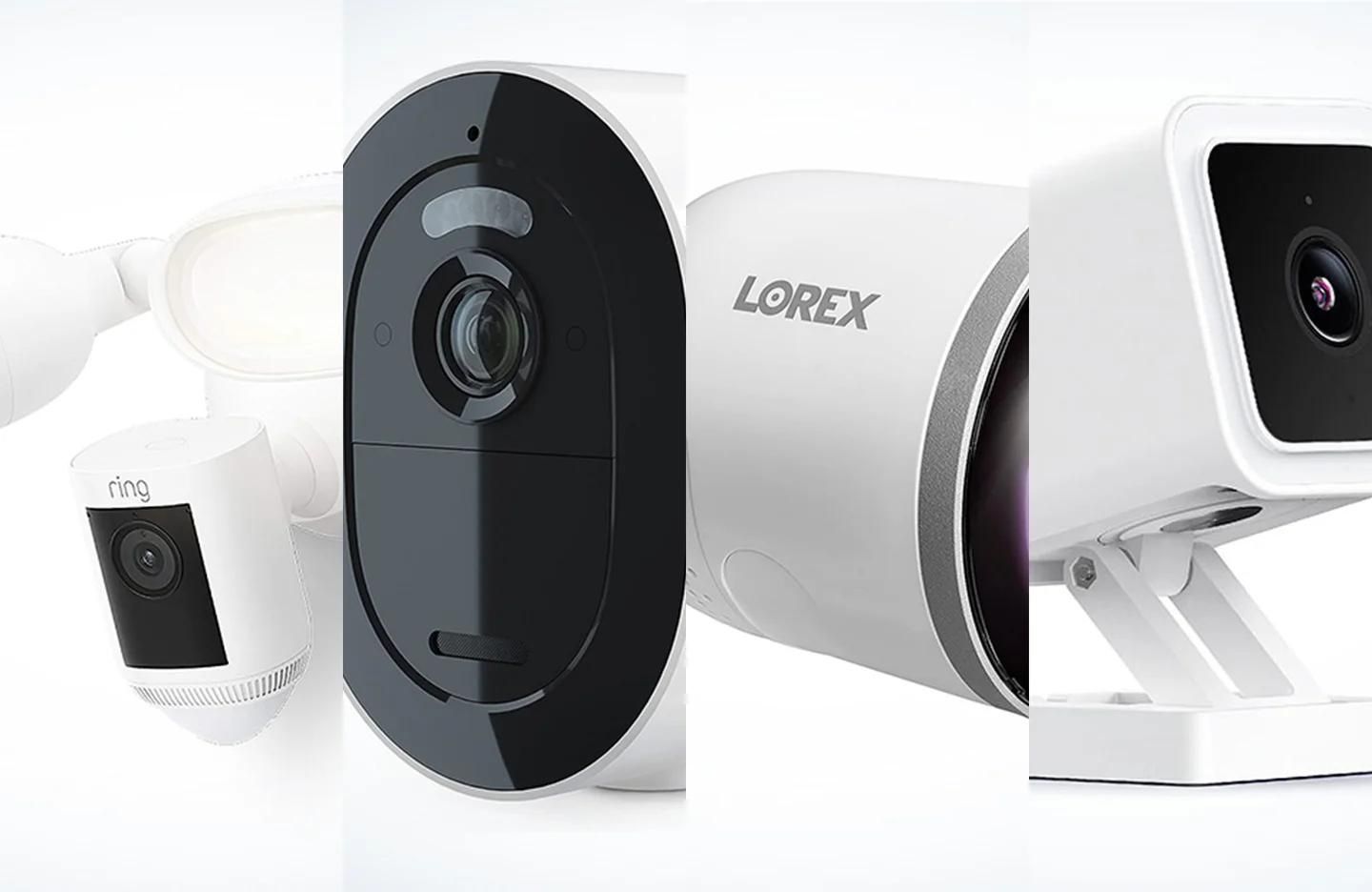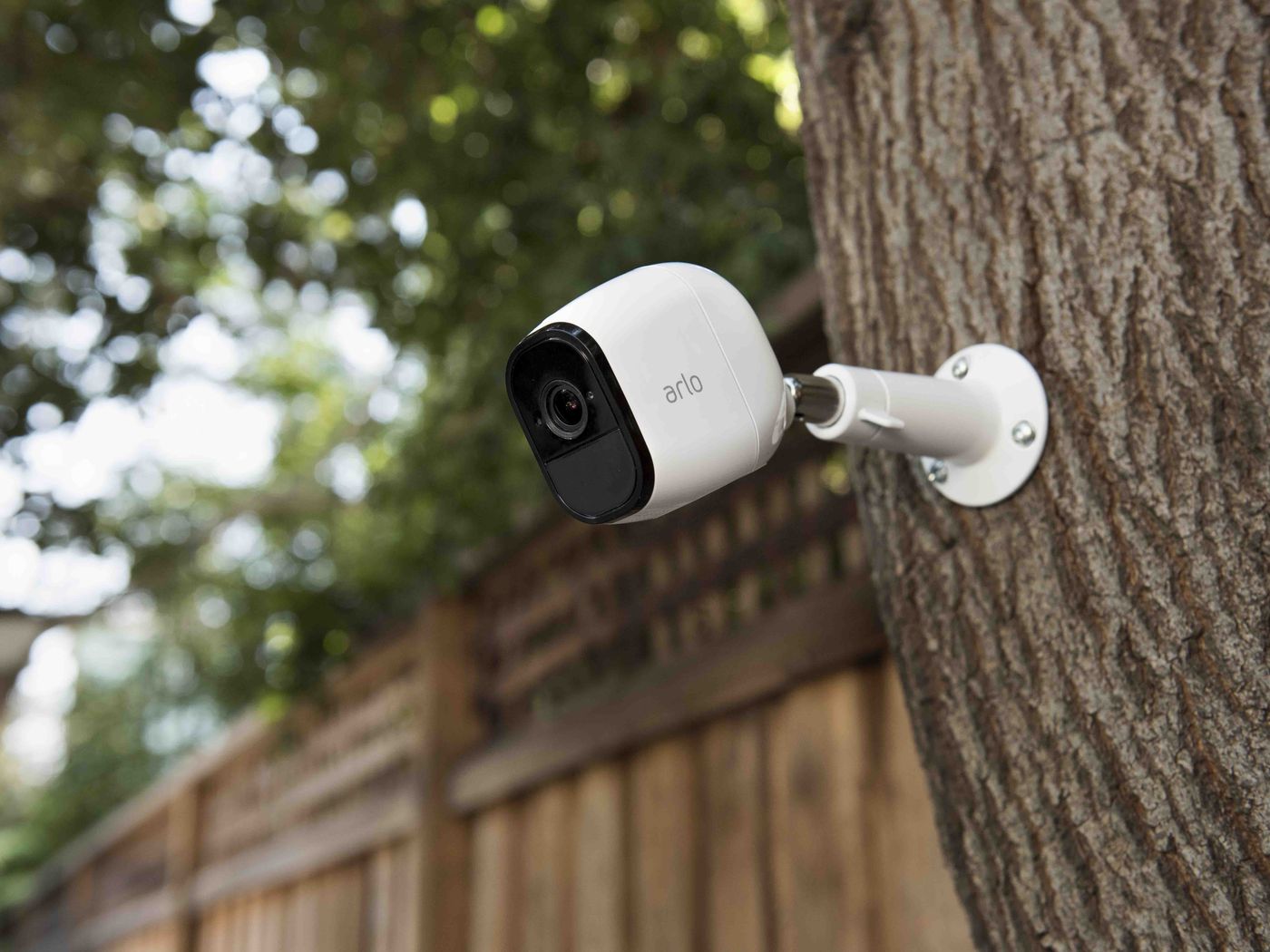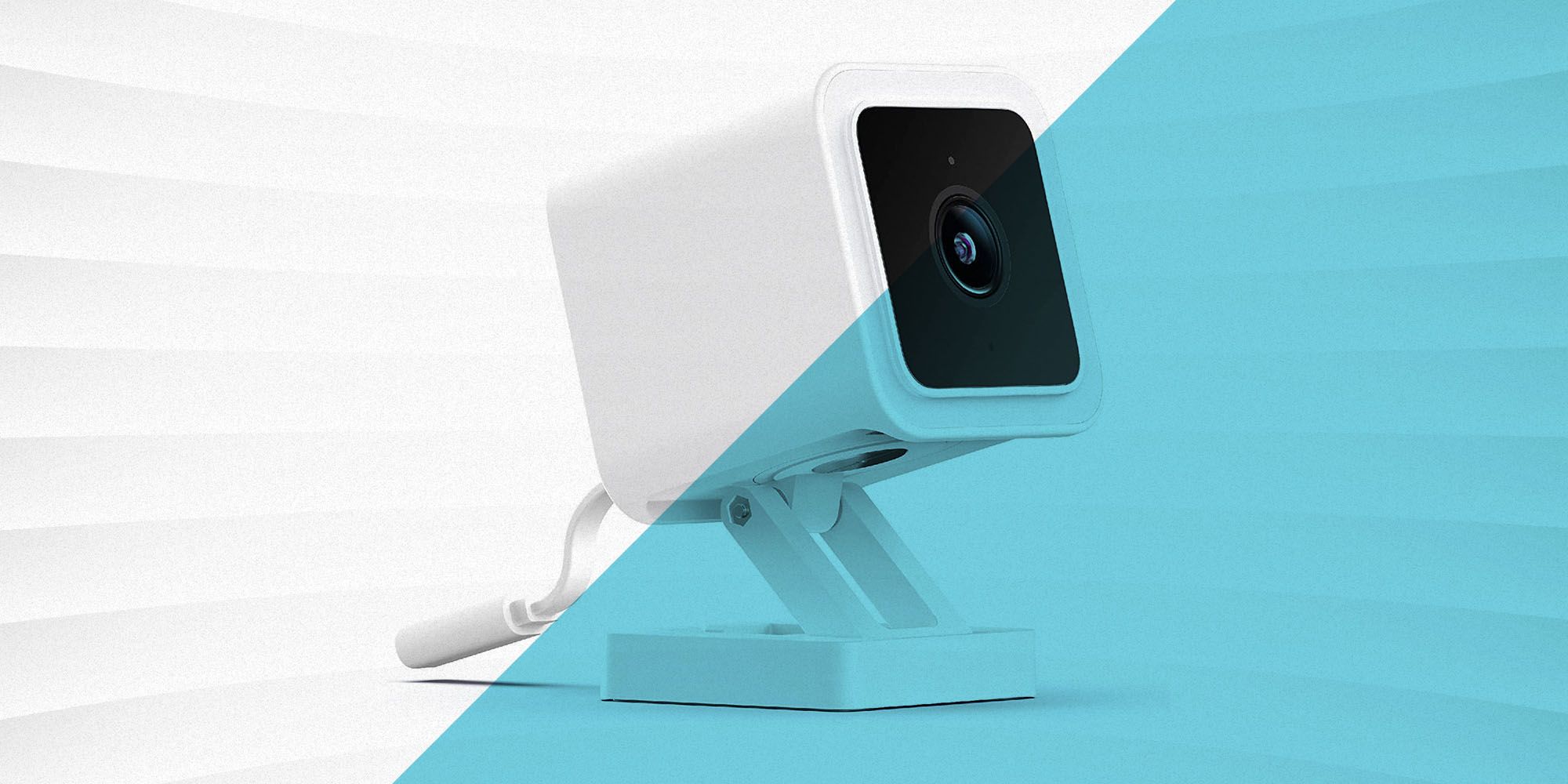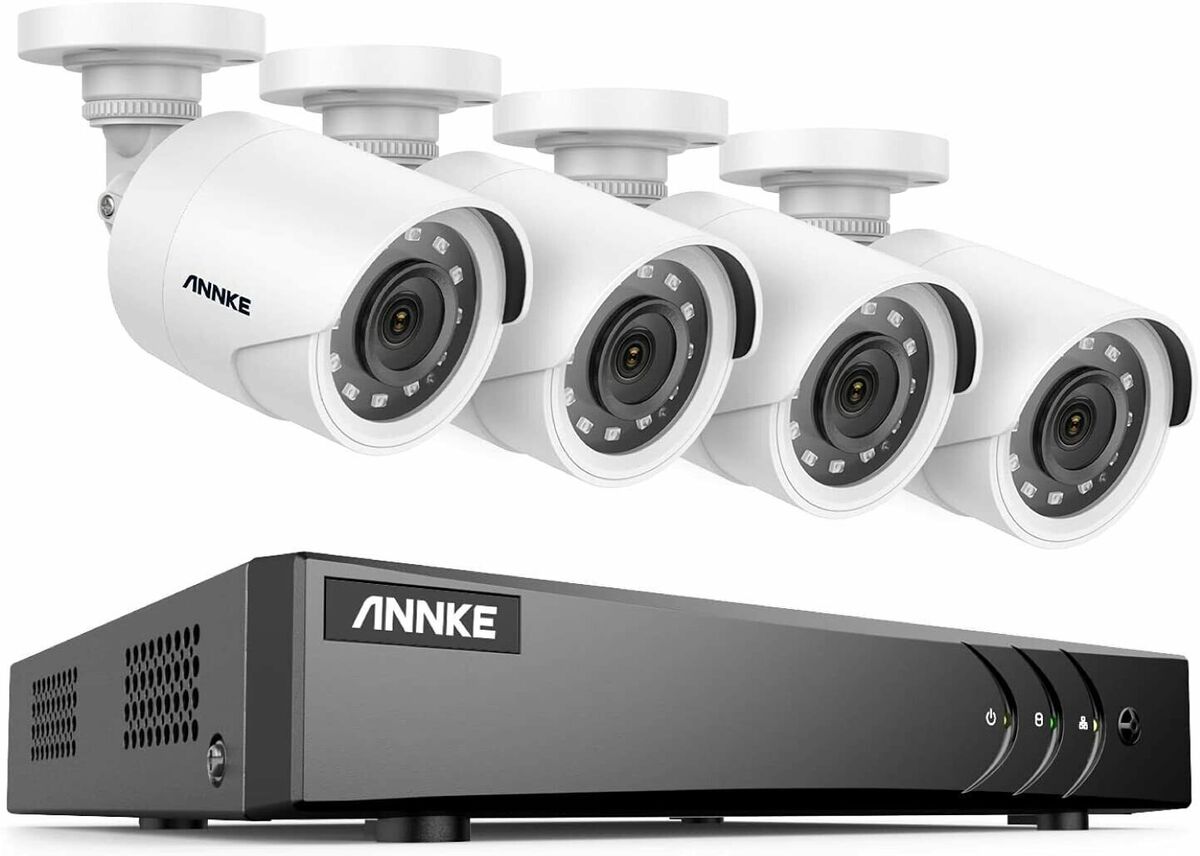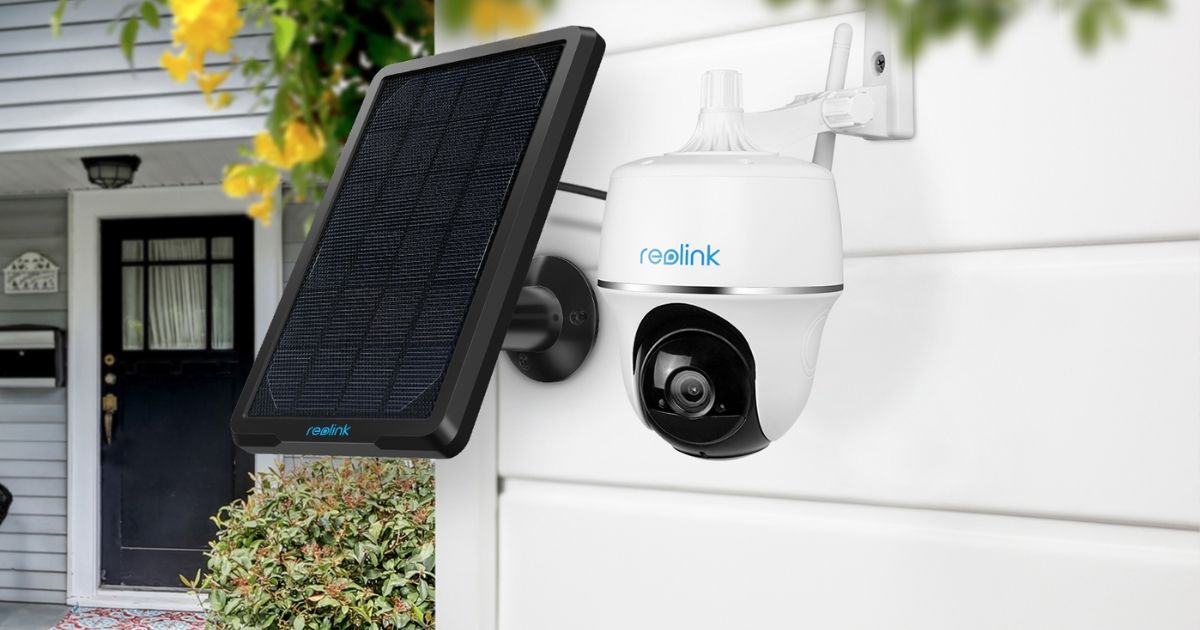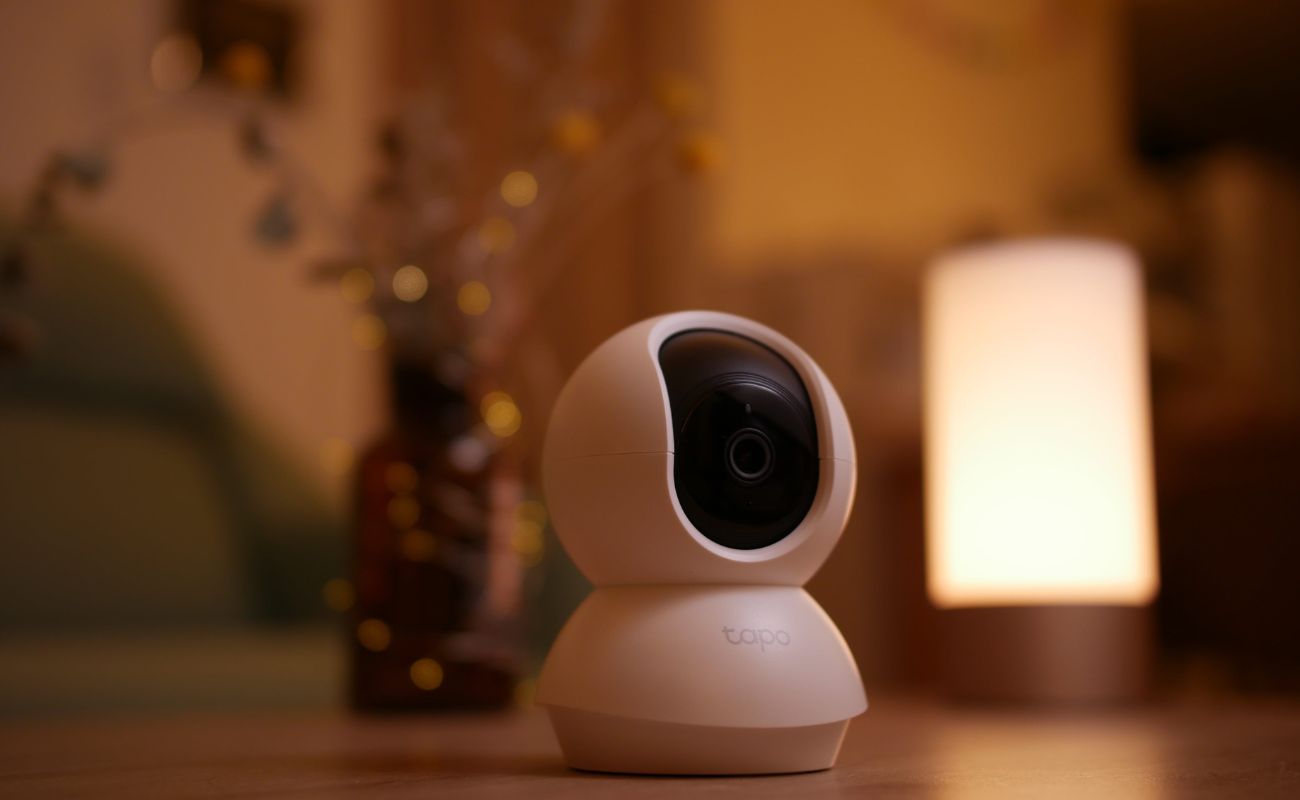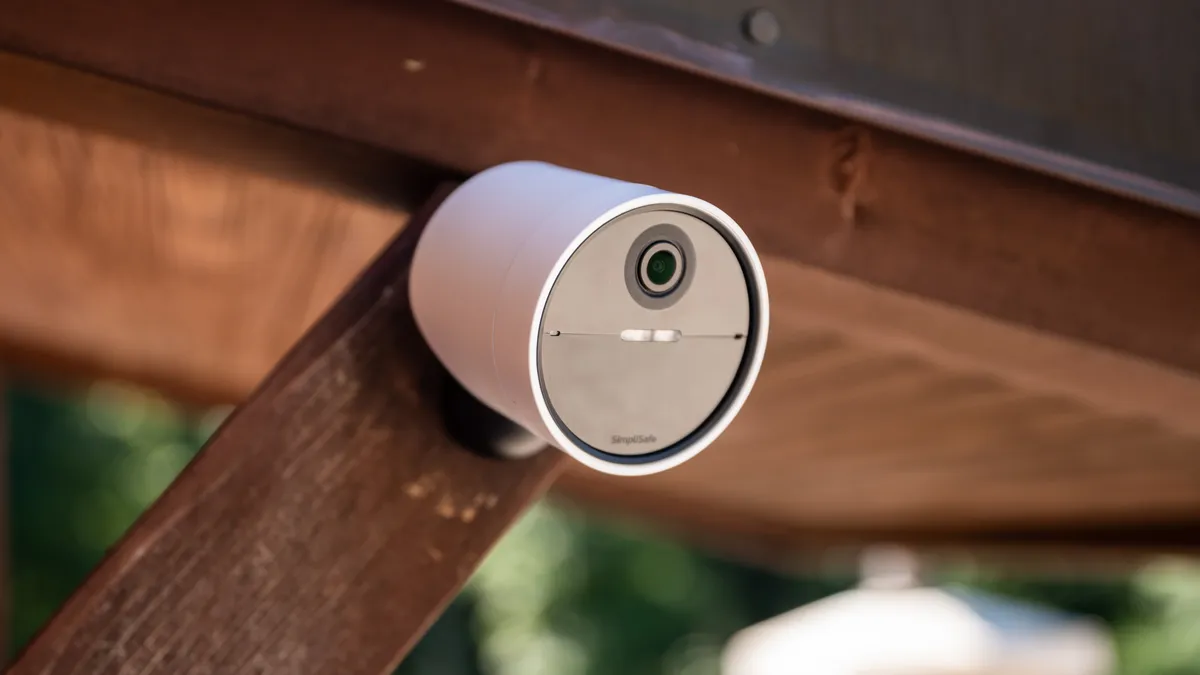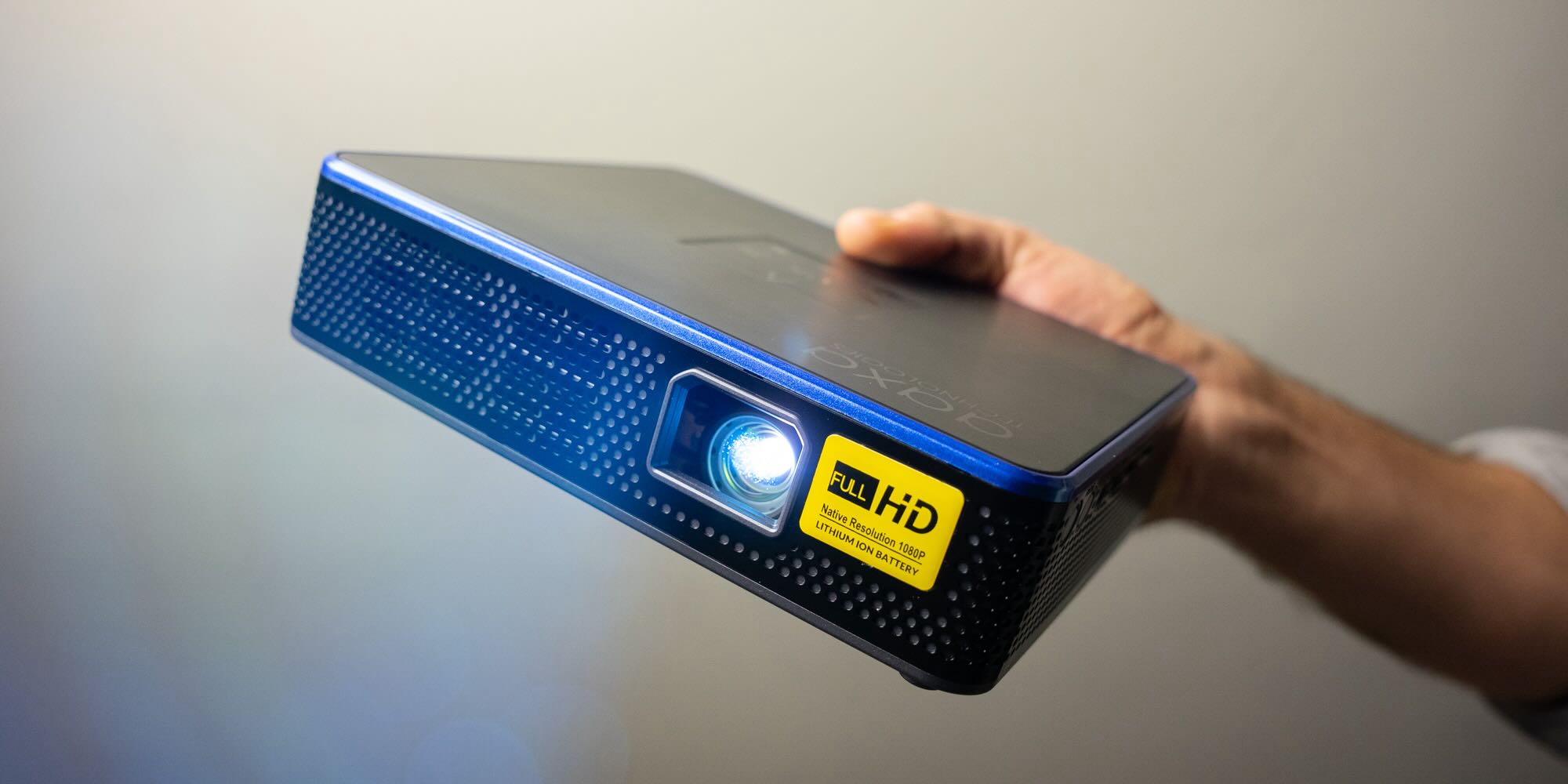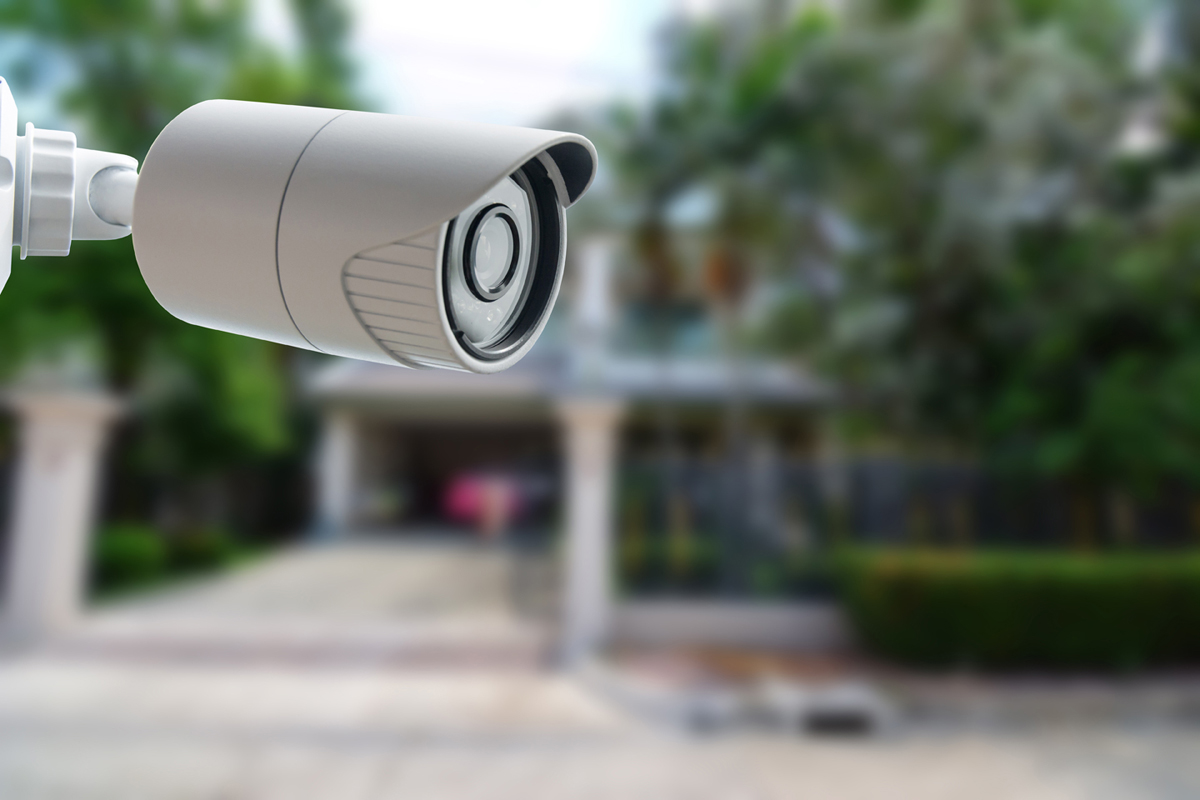Home>Home Security and Surveillance>What Is The Best Security Camera Resolution
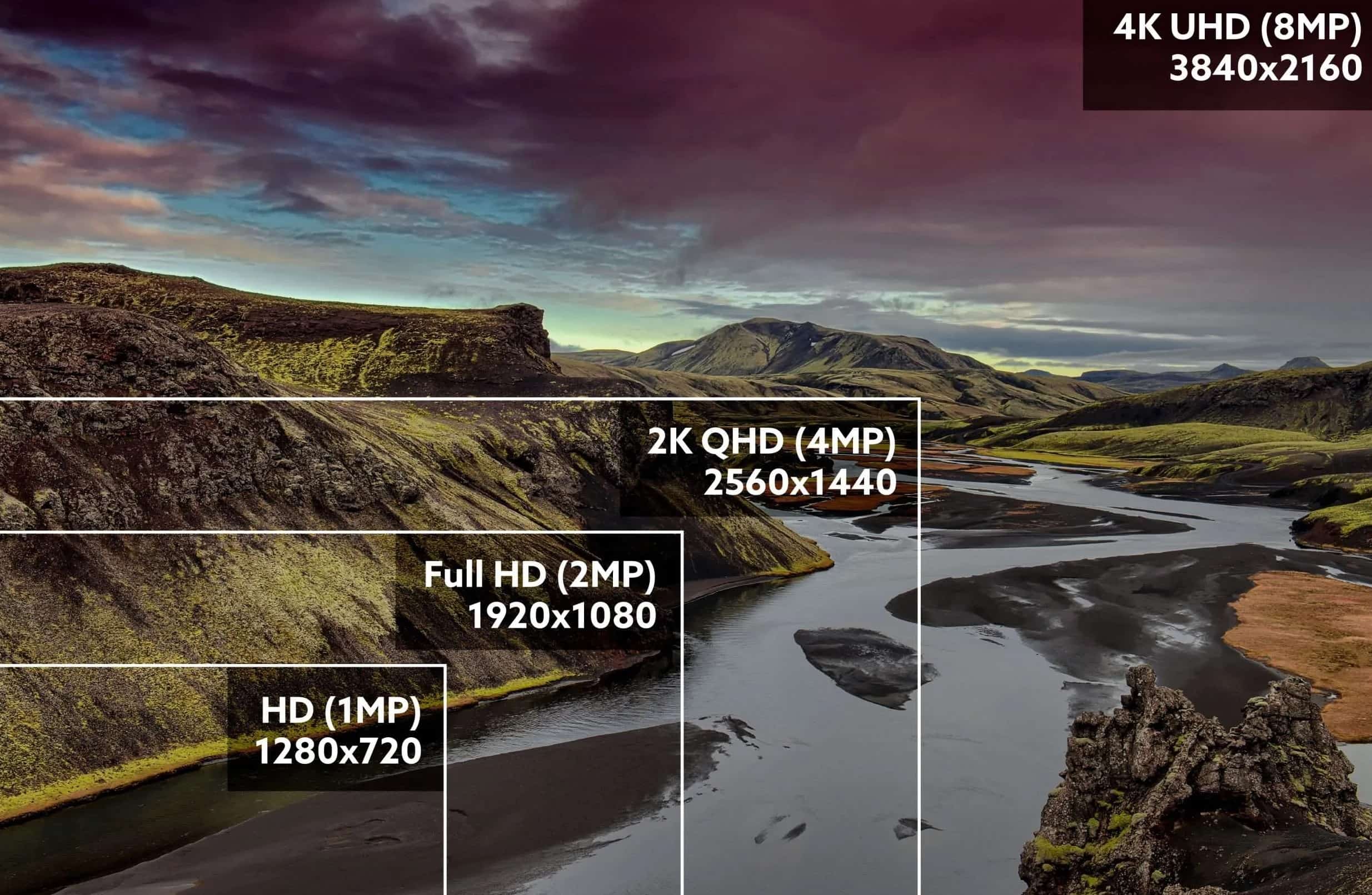

Home Security and Surveillance
What Is The Best Security Camera Resolution
Modified: March 6, 2024
Discover the best security camera resolution for your home security and surveillance needs. Find out how to choose the perfect resolution for maximum clarity and detail.
(Many of the links in this article redirect to a specific reviewed product. Your purchase of these products through affiliate links helps to generate commission for Storables.com, at no extra cost. Learn more)
Introduction
Ensuring the safety and security of our homes and loved ones has become a top priority for many people. With advancements in technology, home security systems have evolved to include sophisticated surveillance cameras that provide a much-needed sense of peace and protection. One crucial aspect to consider when investing in a security camera is the resolution. The resolution of a security camera plays a vital role in determining the clarity and level of detail captured in the footage.
In this article, we will delve into the world of security camera resolution, exploring its various aspects and highlighting the factors to consider when choosing the best resolution for your needs. We will also discuss the importance of high resolution for enhanced security, the different types of security camera resolutions available, and strategies to determine the ideal resolution for your specific requirements.
Understanding the intricacies of security camera resolution is essential to make an informed decision when selecting a surveillance system for your home or business. Whether you are a homeowner looking to protect your property or a business owner aiming to secure your premises, this article will provide you with valuable insights to aid your decision-making process.
Moreover, we will explore popular security camera brands and their recommended resolutions, giving you a glimpse into the industry standards and helping you choose the best option based on your budget and preferences. By the end of this article, you will be equipped with the knowledge and understanding necessary to make an informed decision and invest in the best security camera resolution to meet your specific needs.
Key Takeaways:
- High-resolution security cameras capture clear and detailed images, aiding in identifying faces, objects, and actions, enhancing security and providing valuable evidence for investigations.
- Consider monitoring goals, lighting conditions, and budget constraints when choosing a security camera resolution to ensure optimal security for your property.
Understanding Security Camera Resolution
When it comes to security cameras, resolution refers to the number of pixels that are captured in an image or video. In simple terms, it determines the level of detail and clarity that the camera can capture. A higher resolution means more pixels, resulting in sharper and more defined images and videos.
Resolution is typically measured in terms of pixel count, commonly denoted as “p”. The most common resolutions for security cameras include 720p, 1080p (also known as Full HD), 4K, and even higher resolutions for specialized systems.
While the pixel count is crucial, it’s not the only factor to consider when understanding security camera resolution. The sensor size and lens quality also play a significant role in the overall image quality. A high-resolution camera with a larger sensor and superior lens will produce better results compared to a camera with the same resolution but smaller sensor size and lower lens quality. Therefore, it’s essential to consider all these factors when evaluating security camera systems.
Having a clear understanding of security camera resolution is vital as it directly impacts the level of detail and clarity in the footage. Higher resolution cameras capture more details, making it easier to identify faces, license plates, or other crucial information in case of an incident. This can be particularly beneficial for law enforcement authorities in investigations.
On the other hand, low-resolution cameras may not provide enough detail, making it challenging to identify individuals or discern specific details in the footage. This can limit the effectiveness of the security system, especially in critical situations. Therefore, it’s important to choose a security camera resolution that suits your specific needs and provides the desired level of clarity and detail.
It’s important to note that higher resolution cameras generally come with a higher price tag. However, investing in a higher resolution camera can provide valuable benefits in terms of image quality, clarity, and the ability to capture important details. Therefore, it’s crucial to find a balance between your budget and the level of security you require when choosing a security camera resolution.
In the next section, we will discuss the factors to consider when choosing the best security camera resolution for your needs.
Factors to Consider When Choosing Security Camera Resolution
Choosing the right security camera resolution is crucial to ensure that your surveillance system effectively meets your security needs. Here are some key factors to consider when making this important decision:
- Monitoring Area: The size and scope of the area you want to monitor will play a significant role in determining the ideal resolution. Larger areas will typically require higher resolution cameras to capture more details and maintain clarity over long distances.
- Target Objects: Consider the specific objects or areas you want to monitor. For example, if you need to capture fine details such as license plates or facial features, a higher resolution camera will be necessary to ensure clarity.
- Lighting Conditions: Take into account the lighting conditions in the area you intend to monitor. Low-light environments may require cameras with advanced sensors and low-light capabilities to capture clear images and videos even in challenging lighting conditions.
- Storage Capacity: Higher resolution cameras produce larger file sizes, requiring more storage capacity. Ensure that you have sufficient storage to accommodate the increased file sizes of higher resolution footage.
- Bandwidth Considerations: Higher resolution cameras require more bandwidth for streaming and viewing the footage remotely. If you plan on accessing the live feed or recorded footage remotely, ensure that your network has the necessary bandwidth to support the higher resolution streams.
- Budget: Higher resolution cameras typically come with a higher price tag. It’s important to consider your budget and find a balance between the desired resolution and your financial limitations.
By considering these factors, you can narrow down your options and select the most suitable security camera resolution for your specific requirements. It’s crucial to strike the right balance between capturing the necessary details and staying within your budget.
In the next section, we will explore the importance of high resolution for enhanced security and how it can benefit your surveillance system.
The Importance of High Resolution for Enhanced Security
When it comes to securing your home or business, having high resolution security cameras can make a significant difference in your surveillance system’s effectiveness. Here are some reasons why high resolution is important for enhanced security:
- Improved Clarity and Detail: High resolution cameras capture more pixels, resulting in sharper and more detailed images and videos. This allows for better identification of individuals, objects, and actions captured in the footage. Clearer images make it easier to recognize faces, distinguish license plates, and observe specific details that can be crucial in investigations or monitoring.
- Enhanced Object Recognition: High resolution cameras provide better object recognition, enabling you to identify and track movements more accurately. This can be particularly useful in scenarios where you need to monitor the movement of individuals or objects in real-time or during playback.
- Better Facial Recognition: High resolution footage facilitates more accurate facial recognition, which is crucial in identifying potential threats or unauthorized individuals. This can be especially valuable for homes, businesses, or public spaces where facial recognition can help enhance security measures.
- Increased Coverage Area: With high resolution cameras, you can cover larger areas without compromising on image quality. This allows you to monitor expansive spaces while still capturing detailed images and videos, therefore maximizing your surveillance capabilities.
- Evidence Collection: In the unfortunate event of a security incident, high resolution footage becomes valuable evidence. Clear and detailed footage can aid law enforcement agencies and investigators in identifying culprits, documenting events accurately, and increasing the chances of apprehending offenders.
- Deterrence: High resolution security cameras can serve as a visible deterrent to potential intruders or criminals. Knowing that their actions will be captured in detail increases the risk for perpetrators, potentially dissuading them from targeting your property or premises.
Investing in high resolution security cameras is a proactive measure to enhance the security of your home or business. The benefits of high resolution extend beyond just monitoring; they can play a pivotal role in deterring incidents, facilitating investigations, and protecting your property and loved ones.
In the next section, we will explore the different types of security camera resolutions available and their characteristics.
When choosing a security camera resolution, opt for at least 1080p for clear and detailed footage. Higher resolutions like 4K provide even better clarity but may require more storage space.
Different Types of Security Camera Resolutions
When it comes to security camera resolutions, there are several options available, each offering different levels of image quality and detail. Here are some of the most common types of security camera resolutions:
- 720p: Also known as HD (High Definition), 720p cameras capture footage at a resolution of 1280 x 720 pixels. While it provides decent image quality, it may not offer the level of detail required for identifying specific features or objects in the footage. This resolution is often used in budget-friendly security systems.
- 1080p (Full HD): This is the most common resolution for security cameras. Full HD cameras capture footage at a resolution of 1920 x 1080 pixels. The increased pixel count results in sharper and more detailed images, allowing for better object recognition and facial identification. Full HD cameras provide a good balance between image quality and affordability.
- 4K Ultra HD: 4K cameras offer exceptional image quality with a resolution of 3840 x 2160 pixels. With four times the number of pixels compared to Full HD, 4K cameras provide incredibly sharp and detailed images. This resolution is ideal for scenarios where every minute detail matters, such as large-scale monitoring or situations where facial recognition is crucial.
- 8K and Beyond: As technology continues to advance, higher resolution options like 8K and beyond are becoming available in the security camera market. These ultra-high resolutions offer unparalleled image quality and detail, making them suitable for specialized applications or scenarios where the highest level of clarity is required.
When selecting a security camera resolution, consider your specific needs, budget, and the level of detail required for effective monitoring and security. While higher resolution cameras offer superior image quality, it’s important to ensure that your storage and network capabilities can handle the larger file sizes and bandwidth requirements associated with these resolutions.
It’s also worth noting that some security cameras come with adjustable resolutions, allowing you to balance image quality and file size according to your specific needs. This flexibility can be useful in optimizing storage space while still maintaining a good level of detail in the footage.
Next, we will discuss how to determine the ideal security camera resolution for your specific requirements.
Read more: What Is The Best Wireless Security Camera
Determining the Ideal Security Camera Resolution for Your Needs
Choosing the right security camera resolution can ensure that your surveillance system meets your specific requirements and provides the level of detail and clarity you need. Here are some steps to help you determine the ideal security camera resolution:
- Assess Your Monitoring Goals: Start by understanding your monitoring goals and the specific areas or objects you want to capture. Consider whether you need to identify fine details such as faces or license plates, or if a general overview of the area is sufficient.
- Evaluate the Monitoring Environment: Assess the lighting conditions and the size of the area you want to monitor. Larger areas or low-light environments may require higher resolution cameras to capture clear and detailed images over long distances.
- Consider Storage Capacity: Higher resolution cameras produce larger file sizes, requiring more storage capacity. Evaluate your storage capabilities and ensure that you have sufficient space to store the footage without compromising on quality or duration.
- Review Budget Constraints: Determine your budget and consider the trade-off between higher resolution and cost. While higher resolution cameras generally offer better image quality, they come at a higher price point. Find a balance between your budget and the level of detail you need for effective surveillance.
- Research and Test: Research different security camera models and resolutions available in the market. Look for user reviews and recommendations specific to your monitoring needs. If possible, test sample footage from different resolution cameras to evaluate the level of detail and image quality they offer.
- Consult with Professionals: If you’re uncertain about which security camera resolution is best suited for your needs, consider reaching out to security professionals or consultants who can provide expert guidance and recommendations based on their experience and knowledge of the industry.
By considering these factors and steps, you can determine the ideal security camera resolution to meet your specific needs. Remember that it’s essential to strike a balance between capturing necessary details and staying within your budget constraints.
In the next section, we will explore popular security camera brands and their recommended resolutions to further assist you in making an informed decision.
Popular Security Camera Brands and Their Recommended Resolutions
When it comes to choosing a security camera, there are various reputable brands that offer a range of options to suit different needs and budgets. Here are some popular security camera brands and their recommended resolutions:
- Hikvision: Hikvision is a well-known brand in the surveillance industry, offering a wide range of security camera options. They recommend 1080p (Full HD) or higher resolutions for most applications, as their cameras are known for their excellent image quality and advanced features.
- Axis Communications: Axis Communications specializes in high-quality IP cameras. They offer a range of resolutions, but they generally recommend 1080p or 4K resolutions for optimal image clarity and detail. Their cameras are known for their advanced technologies and low-light capabilities.
- Dahua Technology: Dahua Technology is another reputable brand that provides a variety of security camera solutions. They recommend 1080p or higher resolutions for most applications, as their cameras offer superior image quality, advanced analytics, and reliable performance.
- Lorex: Lorex offers a wide range of security cameras for both residential and commercial applications. They recommend 1080p or higher resolutions for clear and detailed images. Their cameras are known for their user-friendly interfaces and extensive features.
- Arlo: Arlo specializes in wireless security camera systems. They recommend 1080p resolutions for their cameras, which offer sharp images and convenient wireless connectivity. Arlo cameras are popular for their ease of use and flexible installation options.
- Nest: Nest, a subsidiary of Google, offers security cameras that seamlessly integrate with their smart home ecosystem. They recommend 1080p resolutions for their cameras, which provide high-quality video feeds and advanced features like facial recognition and sound detection.
These are just a few examples of popular security camera brands and their recommended resolutions. It’s important to research and explore the specifications and features of different models within each brand, as they may offer various resolution options to cater to different needs and budgets.
Ultimately, the recommended resolution will depend on your specific requirements, monitoring goals, and available resources. Consider consulting with security professionals or experts in the field who can provide more personalized recommendations based on your unique circumstances.
Next, we will conclude the article and summarize the key points discussed.
Conclusion
Choosing the right security camera resolution is a crucial aspect of building an effective surveillance system for your home or business. A high-resolution camera allows for clearer and more detailed images, enhancing the overall security and monitoring capabilities of your property.
Understanding the different types of security camera resolutions and considering factors such as monitoring goals, lighting conditions, storage capacity, and budget constraints will help you determine the ideal resolution for your specific needs. It’s important to strike a balance between capturing necessary details and staying within your budget limitations.
Popular security camera brands such as Hikvision, Axis Communications, Dahua Technology, Lorex, Arlo, and Nest offer a range of recommended resolutions, with 1080p (Full HD) being a common recommendation for most applications. However, it’s essential to research and explore the specifications and features of different camera models within each brand to find the best fit for your requirements.
Investing in high-resolution security cameras provides numerous benefits, including improved clarity and detail, enhanced object recognition, better facial recognition, increased coverage area, valuable evidence collection, and deterrent effect. These factors contribute to a more secure environment and assist in identifying potential threats or incidents.
Ultimately, selecting the right security camera resolution requires careful consideration and an understanding of your specific monitoring needs. By assessing your goals, evaluating the environment, and researching the available options, you can make an informed decision that aligns with your requirements and ensures optimal security for your property.
Remember to consult with security professionals or experts if you need further guidance in choosing the ideal security camera resolution. With the right resolution and a reliable surveillance system in place, you can have peace of mind knowing that you are taking proactive measures to protect your home or business.
Frequently Asked Questions about What Is The Best Security Camera Resolution
Was this page helpful?
At Storables.com, we guarantee accurate and reliable information. Our content, validated by Expert Board Contributors, is crafted following stringent Editorial Policies. We're committed to providing you with well-researched, expert-backed insights for all your informational needs.
